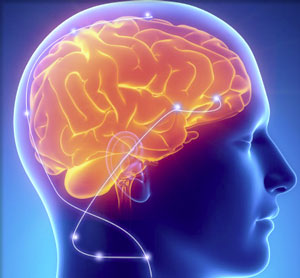Deep brain stimulation is a technique where electrodes are implanted in the brain and act as pacemakers.
German doctors implanted electrodes in the brain of a non-verbal 13 year old with severe autism.
The boy had serious self-injurious behaviors that required restraint. Doctors placed electrodes in the amygdala and his symptoms improved.
At 8 weeks of treatment, his symptoms went from a rating of “severely ill” to “moderately ill” in terms of aggression and self-injury. Eye contact improved, he slept better at night, began trying new foods and didn’t harm himself as much.
After 6 months, he began speaking single words. After 44 weeks, the battery ran out and he deteriorated, but recovered when the battery was replaced.
There’s hope for treating autism.
Claudia
Join me on Facebook at Dr. Claudia McCulloch.
At DrClaudia.net, click on the "Ask Me" button and send me a question.
Sign up for the Sunday newsletter. Don't miss a thing!



